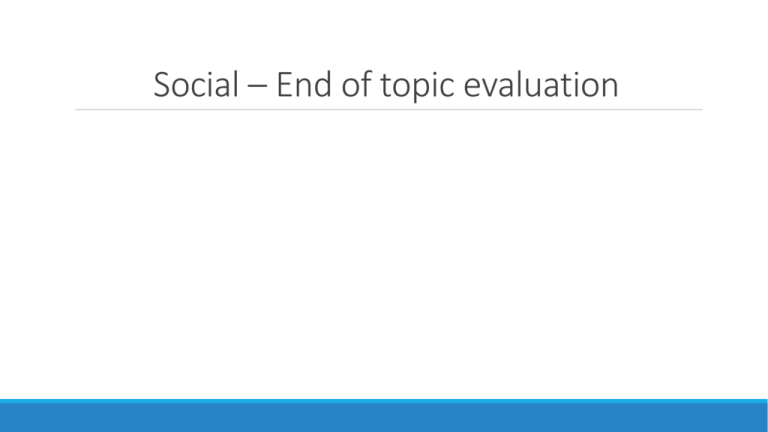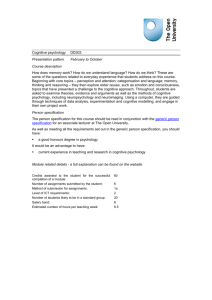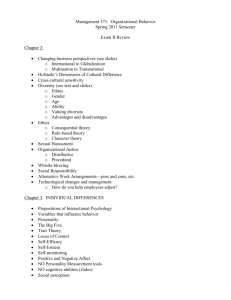Cognitive Psychology
advertisement

Social – End of topic evaluation Topic 2 – Cognitive Psychology Lesson one – Introduction to the approach and topic Cognitive Psychology: definitions & key terms used in this approach What is the cognitive approach? The cognitive approach relates to mental processes that help us to make sense of the world: these include processes such as perception, language, memory, attention & problem-solving. One way cognitive psychologists think about this approach is by using the information processing model. Input, processing and output – How does this work? 1. Our senses receive information (input) 2. Our brain interprets & tries to make sense of this information (processing), 3. We then respond to this, usually with a specific type of behaviour (output). Information Processing – what analogy can we use? SIMILARITIES Information is input via a keyboard, processed & then stored on the hard-drive (the brain), and various outputs can then be made. DIFFERENCES •Input into a computer is more limited , the brain receives masses of information, through the senses, all of the time. Compares the functioning of a computer with that of the human brain to help us understand how mental functions operate. Memory Draw a diagram that represents memory. What do you already know about memory? Create a visual representation. Cognitive processes How else can we research cognitive processes? Such as perception, language, memory, attention & problem-solving. Think about Phineas Gage Cognitive neuropsychology Brain damage allows researchers to see what a person with a certain area of brain damage can do/how they process information with someone without that damage. In psychology, memory is an organisms ability to store, retain, & recall information. Key words •Encoding • Storage • Retrieval •Capacity •Duration In pairs define these words- what do you think they mean in regards to memory? Homework Give a definition of the cognitive approach (6 marks) Use your notes from today, e-books and your own research to answer this question.







